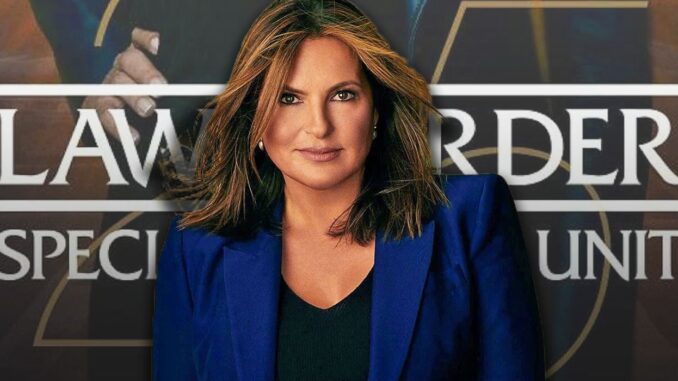
As the credits rolled on the hypothetical — yet chillingly plausible — finale of Law & Order: SVU Season 26, a palpable hum of unease rippled through the fandom. Not because of a particularly dark case or a cliffhanger involving Olivia Benson, but due to a far more visceral shock: the unceremonious departure of two relatively new but undeniably integral faces, Detectives Juliana Aidén Martinez and Octavio Pisano. The news, when it broke, felt less like a carefully plotted narrative turn and more like a seismic shift, leaving viewers scrambling for answers to the inevitable question: Why?
To understand the why of such a shake-up, one must first appreciate the unique ecosystem of Law & Order: SVU. Now in its third decade, the show is less a conventional series and more a venerable institution, a narrative equivalent of a living organism that constantly sheds and regrows parts to survive. Unlike many dramas that cling to their core ensemble, SVU has proven time and again that its true protagonist is the mission, the indefatigable pursuit of justice for the most vulnerable. Cast changes, therefore, are not just episodic events; they are systemic functions, ensuring the show’s longevity by preventing stagnation and injecting fresh perspectives.
Octavio Pisano’s character, Detective Joe Velasco, embodied a fascinating tension within the squad room. Introduced with a murky past and ties to informants, Velasco arrived as a morally ambiguous figure, a street-smart foil to the more by-the-book detectives. His arc was one of redemption, of finding his place within the rigid framework of the NYPD, even as his past constantly nipped at his heels. We saw him grapple with personal demons, with the seductive pull of his old life, and with the desire to prove himself worthy.
Were Velasco to depart after Season 26, the reasons would likely be a confluence of narrative exhaustion and a yearning for new horizons – both for the character and the actor. Creatively, Velasco's journey from outsider to accepted, if still complex, member of the team might have reached its natural zenith. How many more times could his past resurface without becoming repetitive? Perhaps the writers concluded that his growth within the confines of SVU had run its course, and for him to truly evolve, he had to leave the crucible of the squad room. Perhaps he found a new path, a new role where his unique skillset — his understanding of the streets, his ability to navigate grey areas — could be fully unleashed, untethered from the specific demands of SVU investigations. For Pisano himself, a talent with a striking presence, the risk of typecasting in a long-running procedural could be a powerful motivator to seek roles that challenge him in different ways, ensuring his artistic growth beyond the badge.
Juliana Aidén Martinez, portraying the bright, eager Detective Reyes, brought a youthful energy and a more contemporary sensibility to the squad. Her character, often a tech-savvy presence, seemed to represent the evolving face of law enforcement – more attuned to digital footprints and modern investigatory techniques. Reyes was intelligent, empathetic, and earnest, a stark contrast to some of the more jaded or troubled detectives who have graced the 16th precinct.
Her hypothetical departure, especially after a relatively shorter tenure than Velasco, would likely speak to different industry realities. For a newer actor like Martinez, a role on a show as prominent as SVU is a golden opportunity – a showcase, a proving ground, and a stepping stone. After two seasons (assuming she was introduced in S25 and departed S26), she would have gained invaluable experience and significant exposure. The "why" for her exit might lie less in the exhaustion of her character’s arc and more in the ambition of the actor. The call of film, of leading roles in limited series, or the desire to explore a wider range of characters and genres is a powerful siren song for burgeoning talent. Alternatively, from a narrative standpoint, perhaps the showrunners decided her specific contribution had served its purpose, or they aimed to introduce a different dynamic that required a fresh face entirely, maintaining the show’s tradition of injecting new blood.
Ultimately, the departure of both Martinez and Pisano, if it were to transpire after Season 26, would underscore SVU's enduring commitment to its own narrative evolution, even at the cost of beloved characters. It's a pragmatic necessity in a show that defies typical television lifespans. The reasons are rarely singular; they are a complex tapestry woven from creative mandates (to keep the storytelling fresh and prevent stagnation), financial considerations (the constant balancing act of production budgets), and the personal and professional ambitions of the actors themselves.
The shake-up, while initially disorienting, would serve as a stark reminder that in the universe of SVU, the badge is passed, the torch is carried forward, but the mission remains eternal. The faces change, but the fight against injustice, under Olivia Benson’s unwavering leadership, relentlessly continues. And in that cyclical nature, lies the true secret of SVU's enduring, if sometimes jarring, appeal.
